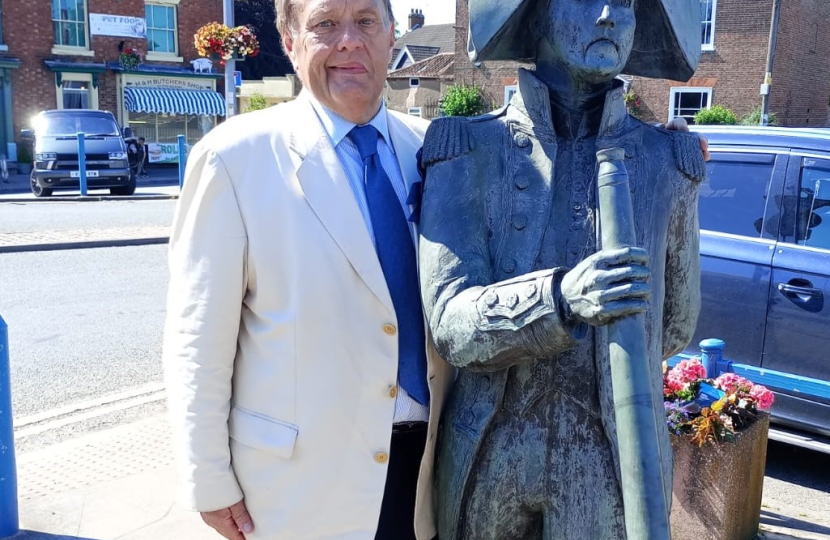
Daniel Defoe’s remarkable tale Robinson Crusoe inspired a boy from Donington to sail, to explore and to discover. In the late eighteenth century, that boy, Matthew Flinders, became the first man to circumnavigate the land originally labelled Terra Australis, giving the immense, distant island a name that lasted – Australia.
Yet our heroic local explorer was lost for so long. Buried in 1814 after succumbing to kidney disease in London, Flinders’ resting place was unknown from 1852 onwards. So, it is extraordinary that his remains were rediscovered in 2019 by archaeologists whilst digging up St James’ Garden Burial Ground next to London Euston station.
Born in Donington in 1774, the son of a local surgeon, Matthew was educated at Cowley’s Charity School (now the Cowley Academy) from 1780, before studying at the Reverend John Shinglar's Grammar School at Horbling. Like his fictional hero Robinson Crusoe, he went to sea, joining the Royal Navy in 1789, the year of the French Revolution – he was just 15 years old!
Flinders’ career was shaped by his admirable personal qualities: devotion to duty, determination to work hard and fortitude. The monumental work, ‘A Voyage to Terra Australis’, was written towards the end of his forty-year life, during which he helped to develop the field of navigation, an achievement recognised to this day by sailors globally.
So, knowing that many members of his family, including his father and brother, were laid to rest in Donington, marked by memorial tablets in the Church, I was proud to join so many locals, along with distinguished visitors from Australia and Tasmania, to witness the reburial of Captain Flinders. Having supported the Bring Him Home campaign from its outset, speaking in the House of Commons to persuade the Bishop of London to agree to forgo the accepted church practice of burying discovered remains in the nearest consecrated ground, it was moving to be one of those to witness his final journey home to St Mary and the Holy Rood Church in which he was baptised. However, it is the Bring Him Home campaign committee itself, particularly Jane Pearson, that deserve the credit for this historic event.
As the congregation heard from Lord Stuart Rose, a longstanding admirer of Donington’s most famous son, this was not the first time Flinders had struggled to get home. After completing his circumnavigation of Australia, Flinders sought to return to England in December 1803, but was forced to stop on the French-controlled Isle de France (now named Mauritius) to repair his ship, where he was imprisoned during to the ongoing war between Napoleonic France and Britain. Flinders remained trapped there until finally, released, returning to Britain in 1810. His incarceration makes it touchingly appropriate that his new grave includes soil from Mauritius, as well as his native Donington, Australia, and London where he ended his days. The boomerang, also placed there by a descendent of his aboriginal friend Bungaree, was particularly poignant.
Captain Flinders’ fame endures in Lincolnshire as well as across Australia, but more should know of him elsewhere. Which is why my campaign to make Captain Matthew Flinders a posthumous Fellow of the Royal Society, in recognition of his distinguished service, continues, and perhaps a dedicated local museum might be founded too. It is fitting that our local explorer, himself once lost, has been brought home, against all the odds, for a final time.
